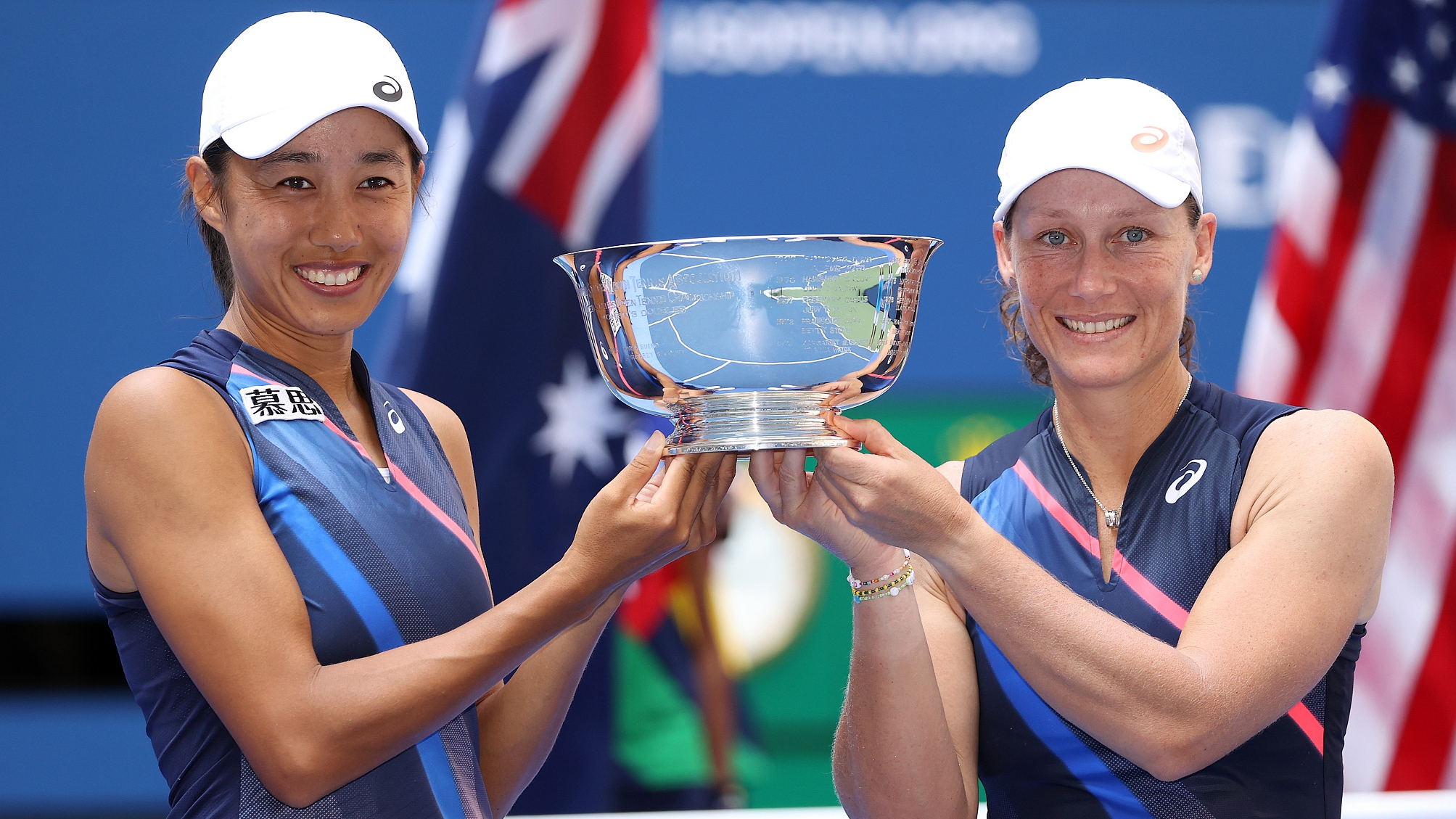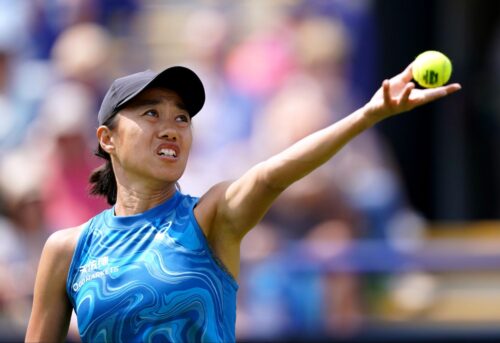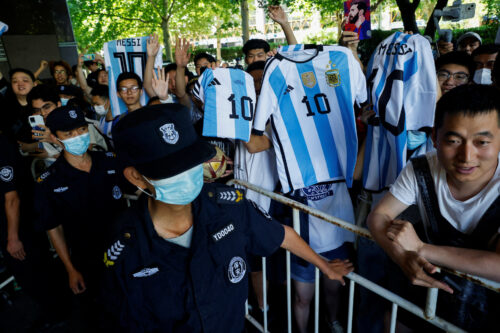Chinese-Australian duo wins second doubles Grand Slam
Meanwhile: China lost to Japan 1-0 in World Cup qualifying last Tuesday, dropping it to 0-2 in its group. China has not beaten Japan since 1988.

Zhāng Shuài 张帅 and her Australian partner Samantha Stosur won their second Grand Slam women’s title on Sunday at the U.S. Open, beating the 11th seed American duo of Coco Gauff and Caty McNally in three sets, 6-3, 3-6, 6-3.
The pair, which was ranked 14th going into this tournament, previously won the 2019 Australian Open.
Zhang, 31, and Stosur, 37, started the match superbly with only two unforced errors in the first set, allowing them to capitalize on Gauff and McNally’s 10 unforced errors.
After the teenage duo tied things up, the deciding set was a display of veteran experience over youth. Dropping just three points on first serves, Zhang and Stosur controlled the third set, breaking the Americans to take the game to 5-3, leaving the Chinese-Australian pair to serve for the title.
Arguably creating as much attention on Chinese social media, however, was 18-year-old British sensation Emma Raducanu, the singles winner, who is half-Chinese. She spoke a few words of Mandarin following her win:
“She speaks just like a ‘Dong Bei (north-east Chinese) girl.’ How amazing!” one comment on Sina Weibo read, according to BBC.
Raducanu is being celebrated in Britain as well, as the first British woman to win a tennis Grand Slam since 1977. You can bet that she’s about to make a fortune in sponsorship deals in these two countries.
~
China lose to Japan in second World Cup qualifier
China lost to Japan 1-0 in World Cup qualifying last Tuesday, dropping it to 0-2 in its group, having previously lost to Australia 3-0. China has not beaten Japan since 1988.
Despite the narrow margin, the gulf in class between the two sides was apparent from the very start. Japan controlled 71 percent of possession and denied China a single shot on goal.
Hitting the woodwork a number of times in the first half, early Japanese pressure finally paid off when Junya Ito burned Wáng Shēnchāo 王燊超 on the wing before whipping in a sharp cross for Yuya Osako to turn in.
Japan continued to pile on the pressure in the second half, albeit without that clinical edge.
Manager Lǐ Tiě 李铁 subbed on Luò Guófù 洛国富 (a.k.a., Aloísio dos Santos Gonçalves) and Ā Lán 阿兰 (Alan Carvalho) for Ài Kèsēn 艾克森 (Elkeson de Oliveira Cardoso) and Jiǎng Guāngtài 蒋光太 (Tyias Browning) in an attempt to find a spak, China only mustered three shots in the 90 minutes, none of them on goal.
Following the game, star winger Wǔ Lěi 武磊 bemoaned the gap between China and the top Asian teams. On social media, the Espanyol forward wrote, “Beside me, nearly the entire Japanese team is preparing to return to their respective European clubs. At that sight, I feel a strong gush of mixed feelings inside. The gap between China and Asian top teams is really big, which we have to face up to.”
The defeat leaves China adrift of the top two qualifying spots, at the bottom of Group B. The team’s next game is against Vietnam on October 7, a game China should win easily on paper — though China has lost easier games in its recent past. Afterwards, China will face Saudi Arabia, a team it will have to beat twice if it wants any chance of finishing in the top two. Rematches against Australia and Japan will happen later in the fall.
~
Other Stories:
Zhou Qi signs for South East Melbourne Phoenix in Australia’s NBL (Sydney Morning Herald)
Why is China’s ice hockey team so bad? (SCMP)
Gaming crackdown threatens China’s esports dominance (FT)
National broadcasters urged to cancel Beijing Olympic plans (AP)
Rio ping-pong gold medalist Ding Ning retires to start life a Peking University student (China Daily)
The China Sports Column runs every week on The China Project.





